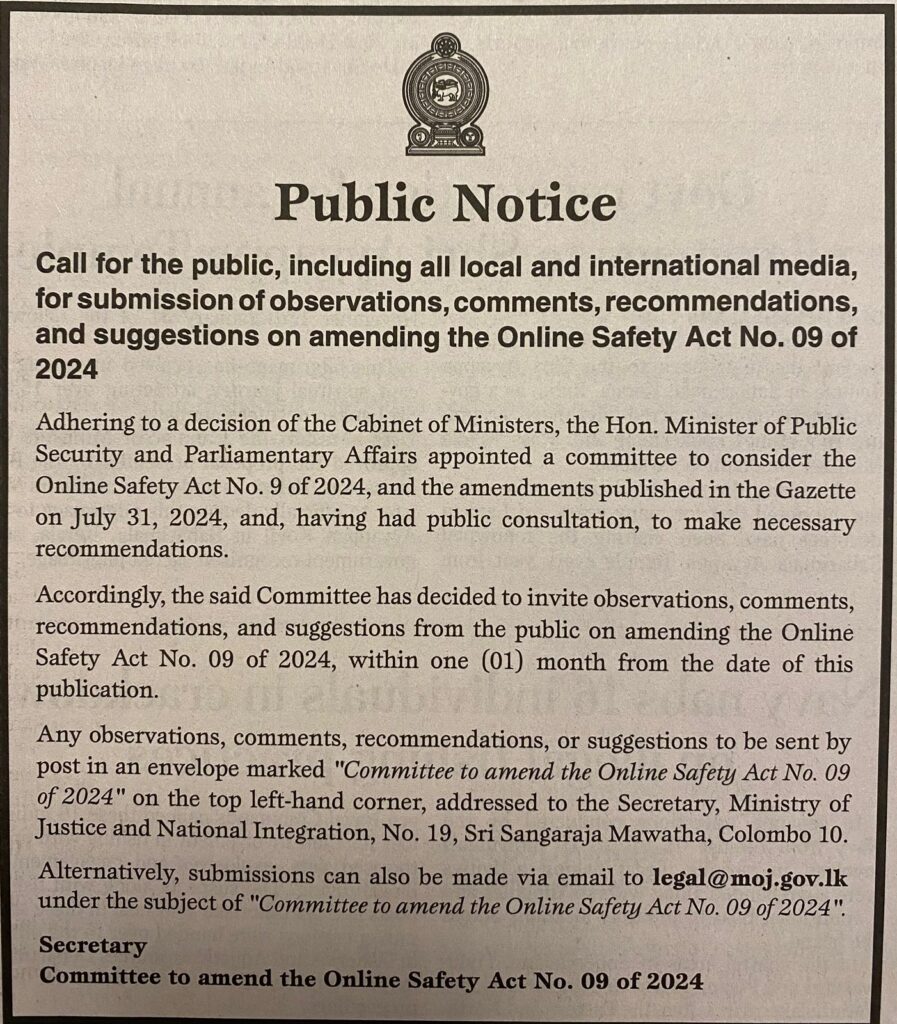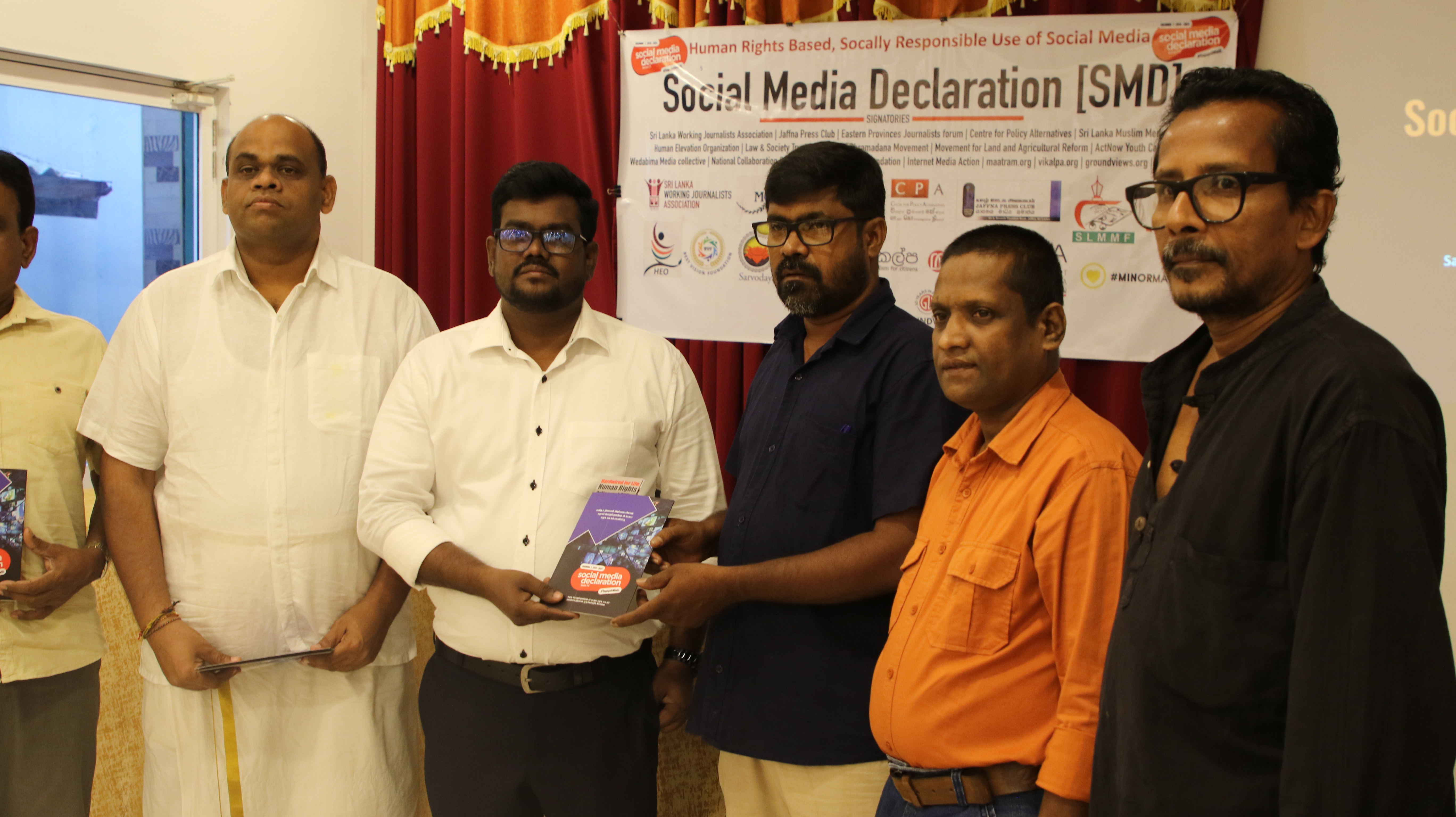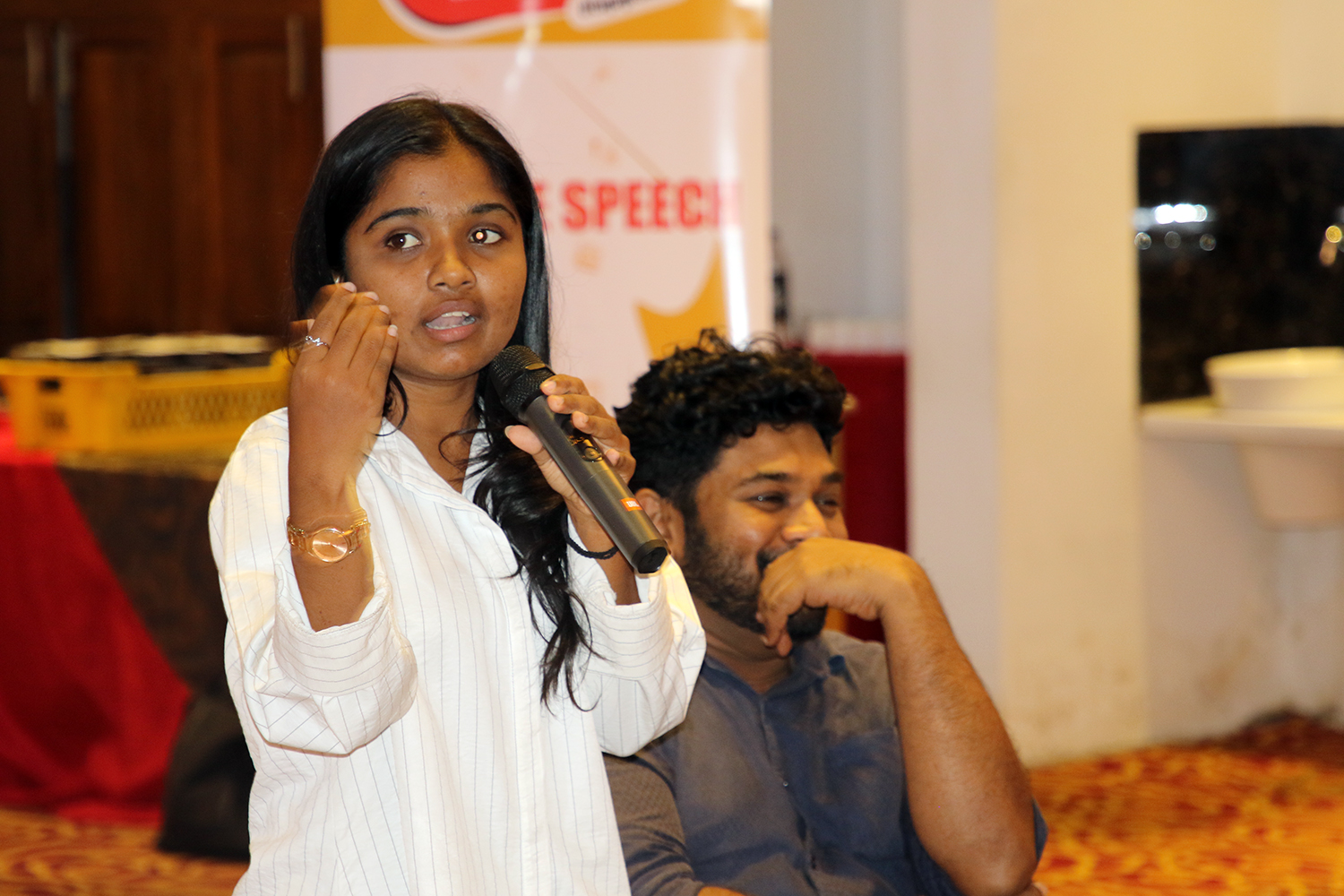
Submission on Amend the Online Safety Act No. 09 of 2024
Prior to the current National People’s Power government coming to office, the present Prime Minister, Harini Amarasuriya, stated that the Online Safety Act (OSA) would be repealed in its entirety. However, as of today, the government under her premiership has appointed a committee to review the Act. This committee issued a public notice, granting a period of one month for the public to submit their views. Accordingly, the Collective for Social Media Declaration (CSMD) submitted a proposal to the committee containing its observations, recommendations, and suggestions.
The main submission therein is that the repressive Online Safety Act (OSA) should be repealed in its entirety.
The proposal submitted to the Committee on Online Safety is presented below.

Secretary,
Ministry of Justice and National Integration,
No. 19, Sri Sangaraja Mawatha,
Colombo 10.
12 September 2025
Dear Members of the Committee,
Proposal for the Repeal of the Online Safety Act and Alternative Mechanisms
Repeal of the ONLINE SAFETY ACT (No. 9 OF 2024):
1.The ONLINE SAFETY ACT should be repealed in its entirety.
Reasons:
• Threat to Freedom of Expression: The provisions of the Act restrict individuals’ freedom to express opinions online, which is contrary to Article 14(1)(a) of the Constitution of Sri Lanka and Article 19 of the Universal Declaration of Human Rights. The Act criminalises expression with penalties up to five years imprisonment and one million rupee fines, creating twelve vague categories of “prohibited statements” that enable arbitrary enforcement.
• Repressive Nature: Certain provisions of the Act grant the Government excessive powers to restrict online content through a presidentially-controlled Commission operating without judicial oversight. Section 49 provides immunity to Commission members whilst the 24-hour content removal requirement denies due process. The UN High Commissioner for Human Rights explicitly called for repeal, citing violations of international law.
• Constitutional Crisis: The Centre for Policy Alternatives documented that mandatory Supreme Court amendments were ignored during enactment, potentially invalidating the entire law. The Act is irreconcilably at odds with Sri Lanka’s Personal Data Protection Act, creating compliance conflicts that threaten foreign direct investment.
• Enforcement Reality: Despite claims of protecting women and children, enforcement has exclusively targeted political dissent, media disputes, and Tamil/ Muslim activists—with not a single documented instance of protecting vulnerable groups.
• Incompatibility with Technological Reality: In the face of technological advancements such as Generative AI, the outdated model of the Act does not suit the dynamic nature of the internet. The Asia Internet Coalition warned that compliance requirements are technically impossible, potentially forcing platform withdrawal from Sri Lanka.
Recommendation: Immediate steps should be taken to repeal the Act through Parliament.
2. Proposal for Formulating an Alternative Mechanism Based on Global Human Rights Frameworks:
If it is necessary to establish a mechanism to control harmful content on the internet, it should be one that is consistent with global human rights standards, open, and transparent, incorporating the Global Network Initiative’s four-pillar framework: legality, legitimacy, necessity, and proportionality.
Recommendations:
• A Multilateral Advisory Committee: An advisory committee consisting of civil society, technical experts, human rights activists, journalists, media organizations, and government representatives should be established. This committee will provide guidance for formulating a new framework on online safety and digital rights and related matters.
• Respect for Human Rights Standards: Provisions based on global frameworks such as the Universal Declaration of Human Rights, ICCPR (International Covenant on Civil and Political Rights), and GDPR (General Data Protection Regulation) should be included. Apply the “tri-partite test” requiring restrictions be clearly prescribed by law, pursue legitimate aims, and prove necessary and proportionate.
• Transparency and Judicial Oversight: An independent mechanism with judicial review for content removal orders (except narrowly defined emergencies), graduated response timelines based on severity, and mandatory transparency reporting should replace the current system’s arbitrary 24-hour removal requirements.
3. Proposal for Responding to Generative AI and Technological Issues:
A new mechanism should be designed regarding online safety and digital rights in the context of generative artificial intelligence (Generative AI) and other technological advancements, whilst protecting end-to-end encryption and anonymous speech essential for human rights defenders.
Recommendations:
• Participation of Technical Experts: Obtain advice from experts in AI, information technology, digital rights, and digital safety, incorporating differentiated obligations based on platform size and capacity.
• Enhancing Technological and Information Literacy: Launch public awareness programs to educate people about AI, digital rights, and internet technology, including protection against technology-facilitated gender-based violence.
4. Proposal for Public Opinion and Participation:
In formulating the new mechanism, a broad consultation process should be conducted, involving the general public, with particular attention to communities disproportionately affected including Tamil/Muslim activists and minorities.
Recommendation:
• Broad Public Discussions: Gather opinions from diverse stakeholders, including rural and urban communities, youth, digital media users, and conduct human rights impact assessments.
• Use of Digital Platforms: Establish an open platform to obtain public opinion through the internet and other communication channels.
• Independent Monitoring: An independent institution should supervise the public consultation process to ensure openness and transparency, with periodic review mechanisms and parliamentary oversight.
5. Proposal for the Regulation of Harmful Online Content:
A balanced mechanism should be established to regulate harmful phenomena such as hate speech, fake information, and cyber violence, whilst encouraging varied content moderation approaches beyond removal, including labelling, downranking, and fact-checking.
Recommendation:
Self-Regulatory Mechanisms: Encourage the establishment of self-regulatory mechanisms and publications in accordance with global human rights standards for social media platforms and their users. Also, raise public awareness regarding internet codes of conduct and safe use, including for social media. (For example, Social Media Declaration – 2019-2024 https://www.socialmedialanka.org/ )
6. Proposal for International Cooperation:
To address issues related to online safety, cooperation with international institutions and countries should be pursued, learning from jurisdictions that successfully balance safety with rights protection.
Recommendations:
• International Cooperation: Obtain advice and support from international institutions such as UNESCO, Internet Governance Forum (IGF), Global Network Initiative (GNI), and implement recommendations from UN Special Rapporteurs and the EU Election Observation Mission.
• Data Protection: Strengthen laws for the protection of personal data in accordance with international data protection standards such as GDPR, further developing and enforcing existing laws whilst resolving current conflicts between the OSA and PDPA.
Repealing the Act on Online Safety and establishing new, open, rights-centred, and global norms compliant mechanisms will enable Sri Lanka to meet technological and human rights challenges of the digital age by promoting and protecting democratic values, including citizens’ freedom of expression, and safeguarding democratic discourse. We believe this proposal provides a basic framework for that purpose.
Yours sincerely,
Sampath Samarakoon (on behalf of, Collective for Social Media Declaration – CSMD)
ABOUT CSMD: The Social Media Declaration collective is a coalition established by civil society organizations, citizen activists, websites, and subject-matter experts, with the aim of promoting a ‘Human rights–Based, Socially Responsible use of Social Media’. This collective is dedicated to advancing human Rights, including digital rights, and to systematically analyzing online content through research, advocacy, training, awareness-raising, and critical inquiry. It continuously strives to foster and sustainably promote democratic discourse in online spaces grounded in internet freedom, transparency–openness, and democratic values. In this way, the collective remains committed to ensuring societal well-being through the influence of technology and to encouraging the development of responsible, ethical use of social media in the digital age.
The following organizations belong to this collective. Sri Lanka Working Journalists Association | Jaffna Press Club | Eastern Provinces Journalists forum | Centre for Policy Alternatives | Sri lanka Muslim Media Forum | Human Elevation Organization | Low & Society Trust | SARVODAYA Shramadana Movement | Movement for Land and Agricultural Reform | ActNow Youth Campaign | Wedabima Media collective | National Collaboration Development | Foundation Best Vision foundation | Internet Media Action | maatram.org | vikalpa.org | groundviews.org | minormatters.org


